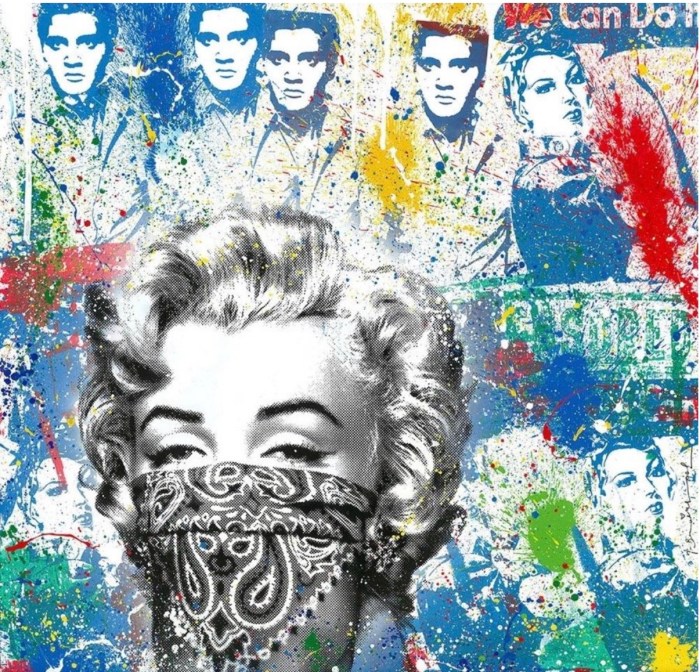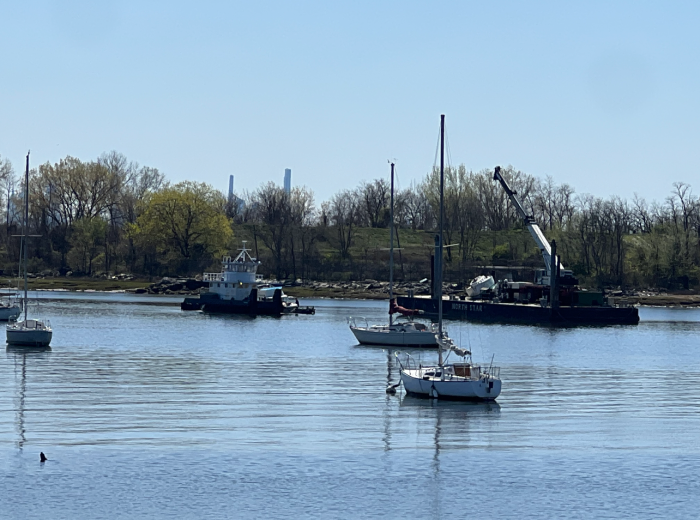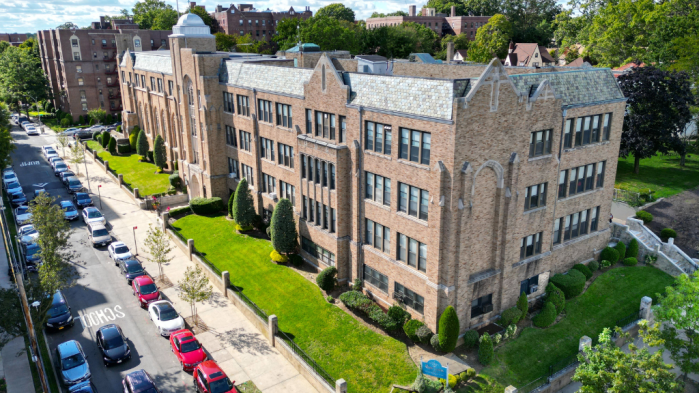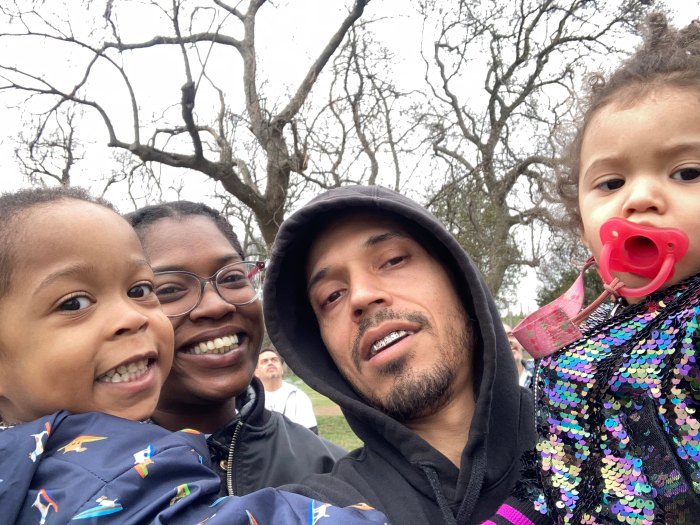‘Headstrong’ calculates the human cost of NFL heroics
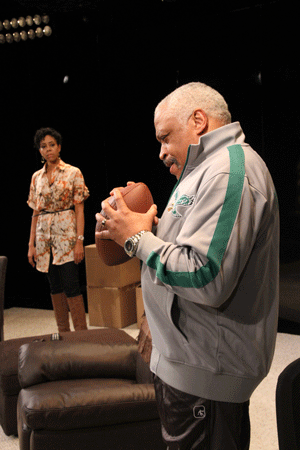 [/media-credit]
[/media-credit]
- Nedra McClyde and Ron Canada aren’t playing games.
BY JERRY TALLMER | The black guy, a hard-bitten Super Bowl champion of years ago, says: “You don’t climb Mount Everest because it’s safe. You don’t drive NASCAR to be safe. Even, what’s it called, the fucking luge in the Olympics. You think that’s safe? It’s all danger. That’s what makes it sport. As opposed to a game by Parker Brothers or Fisher Price.”
The white guy says: “I understand what sport is.”
The black guy says: “So danger is a must. Action is a must, or we won’t have heroes no more.”
Yes, they are a black guy and a white guy — a Dartmouth white guy, no less — but they aren’t arguing color. They’re arguing Chronic Traumatic Encephalopathy, otherwise known as CTE or brain damage, the kind you get when you’re smashed in the head or throat or face several thousand times in an extended National Football League career.
The black guy is old lion Duncan Troy, in his 60s, former all-star, all-pro Philadelphia Eagles linebacker for fourteen seasons and father-in-law of Ronnie Green, a flashy young NFL running back, whose headaches, confusion and dementia have climaxed in early retirement, followed by suicide in a lonesome Cincinnati hotel room.
The white guy, in his 30s, is Nick Merritt, who has come down to Philadelphia from Cambridge, Mass., to try to get permission for his mentor, tart, Nigerian-born neuropathologist and researcher Dr. Moses Odame, to clinically examine the messed-up brain of the late Ronnie Green.
The remaining person in this play — for we are talking here about a new play niftily titled “Headstrong” — is Duncan Troy’s no-nonsense daughter, Sylvia Troy Green, whose permission for the brain probing must be granted even though she and the late Ronnie Green were no longer living as husband and wife.
She says, “No. Take it from there.…”
About 30 seconds into 27-year-old Patrick Link’s “Headstrong,” you’re slapped wide awake by the following exchange about a quarterback named Marino:
NICK MERRITT: The numbers don’t lie.
DUNCAN TROY: You want a number? Zero. That’s how many [Super Bowl victory] rings that guy has…
NICK: Have you met him?
DUNCAN: Met him? I’ve sacked him.
I’m still laughing over that one. And the rest of the play is just as crisp and clean as that. Which doesn’t mean decisive. Because “Headstrong” is purely and simply a play indecision. — the play’s, the playwright’s, and this critic’s own personal ambivalence about the “game” of professional football. Hate it, love it, can’t stop watching it.
All accentuated nowadays — pro and con — by the great “Bountygate” scandal that has so far festered only in the locker room of the New Orleans Saints 2009 Super Bowl winners, who have allegedly had large sums of illegal hard cash dangled before them for driving opposition star players out of the game and into the hospital (or morgue?) with smashes to the heads, faces, eyes, limbs and other body parts.
The stink grew so apparent — with former Saints defense coordinator Gregg Williams caught on audiotape urging just such violence on his troops — that NFL Commissioner Roger Goodell has been forced to step in and impose suspensions: one year for Saints head coach Sean Payton, eight games for general manager Mickey Loomis, six games for assistant head coach Joe Vitt, indefinite suspension for ex-Saint and prime offender Williams.
Patrick Link hasn’t written a play about that except indirectly — what medically happens to the victims of the assaults urged by people like Williams (who can be heard on that audiotape encouraging attacks on the throat of San Francisco quarterback Alex Smith).
“To me,” says playwright and football fan Link, “what’s scary is I don’t think it’s only the Saints who are guilty.”
The divide between Duncan Troy and Nick Merritt in “Headstrong” is the divide within Patrick Link himself. He and his father and brother all grew up on football. “I can’t imagine Thanksgiving without the TV on for the game,” he says.
No, he doesn’t have a team at the moment — he and his wife Olivia live in Hell’s Kitchen — “but I want to like the Jets.” When I told him I’d once interviewed Joe Namath, the week of Super Bowl III, his jaw dropped in awe.
Though young Mr. Link’s father was born in Broken Bow, Nebraska, “population too small to bother to count,” and Patrick himself was born in Jacksonville, Florida on October 30, 1984, the community where our playwright grew up was Amherst, Massachusetts, with pop working for MassMutual.
It was at the University of North Carolina, Chapel Hill, that Link started writing plays, one of which, “Does the Body Good” — you know, like milk — made it into the New York Fringe Festival of 2007. The past four years he’s come under the sheltering wings of Off-Broadway’s Ensemble Studio Theatre.
The genesis of “Headstrong” lies as much as anywhere in the real-life tragedy of Michael Lewis (“Iron Mike”) Webster (1952-2002), the great Hall of Fame lineman of the Pittsburgh Steelers who played with intimidating bare arms no matter the frozen weather and who died of a heart attack at age 50, says Link, while “sort of wandering around in confusion and dementia, living in his truck” — and in railway stations — “and having attempted suicide two or three times.”
Like Ronnie Green in “Headstrong.” Green is gone before the play ever opens, but we see and feel him through the eyes of Duncan Troy (actor Ron Canada), Sylvia Green (Nedra McClyde), Nick Merritt (Alexander Gemignani) and Moses Odame (Tim Cain).
A number of other onetime NFL players have died the same way as Mike Webster, and now of course, we have Peyton Manning battling a variety of symptoms.
So: back to square one. Knowing what we do about the murderousness of professional football, are we for it or against it? (The last college football game that this writer ever attended, years ago, Columbia vs. Dartmouth at Baker Field, seemed like nothing so much as two bunches of fat boys pushing one another around in the rain and mud.)
“I dunno,” says Link. “Maybe there’s more to life than just staying alive. Do your best” — in football as in anything — “maybe there’s value in that.”
And the New Orleans Saints syndrome. What’s to be done about that?
“I dunno,” says Link. “I dunno.”
Nor do I. Fifteen yard penalty. First down.
Headstrong
Written by Patrick Link
Directed by William Carden
Through May 13
At the Ensemble Studio Theatre
549 West 52nd St., btw. 10th & 11th Aves.
Wed.-Mon. at 7pm; matinees, Sat. at 2pm & Sun. at 5pm
For tickets ($30, $20 for students/seniors), visit ovationtix.com or call 866-811-4111
For more info: ensemblestudiotheatre.org










